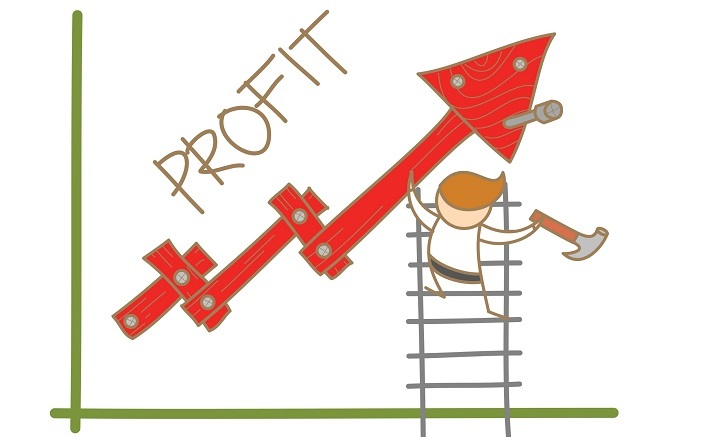
 Data Structure
Data Structure Networking
Networking RDBMS
RDBMS Operating System
Operating System Java
Java MS Excel
MS Excel iOS
iOS HTML
HTML CSS
CSS Android
Android Python
Python C Programming
C Programming C++
C++ C#
C# MongoDB
MongoDB MySQL
MySQL Javascript
Javascript PHP
PHP
- Selected Reading
- UPSC IAS Exams Notes
- Developer's Best Practices
- Questions and Answers
- Effective Resume Writing
- HR Interview Questions
- Computer Glossary
- Who is Who
Deferred Revenue
Introduction
Some of the companies operate on the principle of pay first and receive the services later. A classic example of this type would be all the subscription and ecommerce models, where you have to first initiate the payment to enjoy the services at a later stage in the future.

The company notes this type of income as deferred revenue in their books of accounts. And record them as a liability instead of an asset. Now, let's table down this concept into different parts for easy understanding.
Meaning of Deferred Revenue
Deferred revenue refers to a kind of income earned by the company on goods or services that's not yet delivered. In other words, this is an advance payment received on products that are pending or in transit for delivery. The company considers this as a short-term liability in their financial records until the products or goods reach into the right hands.
Anything received in advance is treated as liability by the company. And this is recorded as per the accrual accounting concept. The cash method treats income earned as revenue only when the transaction is realized, but it's otherwise in the case of accrual accounting.
Understanding Deferred Revenue
Companies enter into multiple transactions each day, either credit or cash, depending on the customers' needs and demands. Generally, revenue is realized in the books only when the whole delivery process is completed. But the case is opposite with deferred revenue.
One can see the reflected revenue in the company's books despite the non-delivery of the goods or services. Here, the risk is for both of the parties because anything can happen in the middle of the transit or transaction. The goods may get damaged or the customer may cancel the order or any uneventful issue can put a pause to the existing deal. Upon any loss, the company has to repay the customer apart from all that loss during the transit.
Since the goods or services are evenly distributed over the period, it's treated as revenue in the company's financial books. Some companies show this value after realization of the total transaction, while others state only the realized revenue monthly. The income in the books will be shown as deferred revenue till the date it's fully realized. This kind of value impacts the profit and loss of the company based on the reporting.
Reasons to record Deferred Revenue
Now, there are numerous reasons why every company records deferred revenue in their financial statements even after not realizing the true value.
As per the accounting standards, the companies are bound to follow the principles. So technically, the company has not much of a choice but to accept the way it is.
It aids the shareholders of the company to know how the money is operating in the business, as unless recorded or shown, things wouldn't be transparent. And when it comes to shareholders, the company has to be transparent and clear with their financials if they want new investments in the future.
The company gets to know that there's no need for loan requirement due to in advance payments that they are going to receive from multiple clients in the future. Hence, there's no need to pledge any collateral with the bank or financial institution to fund their operations.

Deferred revenue cannot be shown as assets in the balance sheet unless it's realized. So, the company records it as liability, thereby, protecting the interests of the shareholders.
Reporting of Deferred Revenue
Deferred revenue is recorded in the liability side of the company's balance sheet due to following reasons
As the company still haven't performed its activities, there's a higher chance that the customer or client may rescind the deal and ask for refund. Though initially it's a plus for the company to get funds in advance, it's still seen as a liability until the job done.
Recognizing revenue before earned can only put the company at risk because the results look overvalued than it actually is, giving pseudo hope to the shareholders.
Companies adhere to conservative approach while recording deferred revenue instead of adding the value to assets side upon cash receivable.
Examples of Deferred Revenue
Mr. Krishna signed up to a golf club by paying $100 to the sports company. After one week, ten of Krishna's friends also joined the club. All the members enjoyed playing golf for the first month. Since the payments auto deducts from the account, some of them decided to withdraw their names after initial month. So, the company has showed the whole advance balance in the liability side instead of assets despite receiving cash in the second month.
Conclusion
Deferred revenue is an income received in advance from clients and customers. However, it's treated as a liability because these are not earned or recognized income yet till the company fulfils their obligation. A classic example for deferred revenue concept is Netflix subscription, where people subscribe initially, but rescinds immediately due to various reasons. Once the revenue is recognized fully, it's no more considered as deferred.
FAQs
Q1)Is deferred revenue operational or non-operational liability?
Ans)Since deferred revenue is all about company's operations, dealing with goods and services and payments, it's considered as an operational liability.

